North Korea says conducts 'final phase' test for developing surveillance satellite
North Korea has conducted an "important, final phase" test for the development of a surveillance satellite, the country's official media outlet says.
The Korean Central News Agency, KCNA, carried the report early Monday, saying the test had been undertaken a day earlier.
The report came after on Sunday, the South Korean and Japanese militaries reported that Pyongyang had fired two ballistic missiles towards the sea off the Korean Peninsula's east coast, known as the Sea of Japan.
The report did not specify if the ballistic missile tests were part of the country's satellite development program, which Pyongyang says it seeks to complete by April 2023.
The KCNA, however, said North Korea's National Aerospace Development Administration (NADA) carried out the test at its Sohae satellite launching station in the northwest to review its capability of satellite imaging, data transmission and ground control systems.
A vehicle carrying a mock satellite was fired during the tests at the "lofted angle" of 500 kilometers (311 miles), it added.
"We confirmed important technical indicators such as camera operating technology in the space environment, data processing and transmission ability of the communication devices, [as well as] tracking and control accuracy of the ground control system," a NADA spokesperson said in the KCNA dispatch.
The spokesperson called the test a "final gateway process of launching a reconnaissance satellite" which will be completed by April.
KCNA also released two black-and-white, low-resolution images of the South Korean capital Seoul and nearby port city of Incheon, which it said were taken during Sunday's launch.
The new test followed a Friday announcement by North Korea, saying the country had tested a new advanced motor for a new weapon system. KCNA reported that the test, which was overseen by the country's leader Kim Jong-un, involved a "high-thrust solid-fuel motor."
The test proved the motor's reliability and stability, providing a "guarantee for the development of another new-type strategic weapon system," the agency said.
The missile tests also came as an extension of a flurry of similar tests conducted by Pyongyang this year in sheer defiance of stark warnings issued on an almost daily basis by its archenemies, the United States, Japan, and South Korea.
The three allies claim that North Korea is advancing its military nuclear program in order to gear up for conducting what would be the country's seventh nuclear weapon test.
Earlier this month, the three countries promised to consider all available options to counter what they deemed to be a threat posed by the North.
US Special Representative on North Korea Sung Kim, South Korea's special representative for Korean Peninsula peace and security affairs, Kim Gunn, and Japanese Ministry of Foreign Affairs Director General for Asian and Oceanian Affairs Bureau Funakoshi Takehiro made the pledge in a meeting on December 13 at the US Embassy in Jakarta, Indonesia.
Speaking at the meeting, Gunn said the behavior of Pyongyang presented "one of the most serious security challenges," adding, "North Korea is becoming more aggressive and blatant in its nuclear threat."
"We will examine all options, including counterstrike capabilities," Funakoshi said, alleging, "North Korea's further provocation will be met with a firm and united response from the international community."
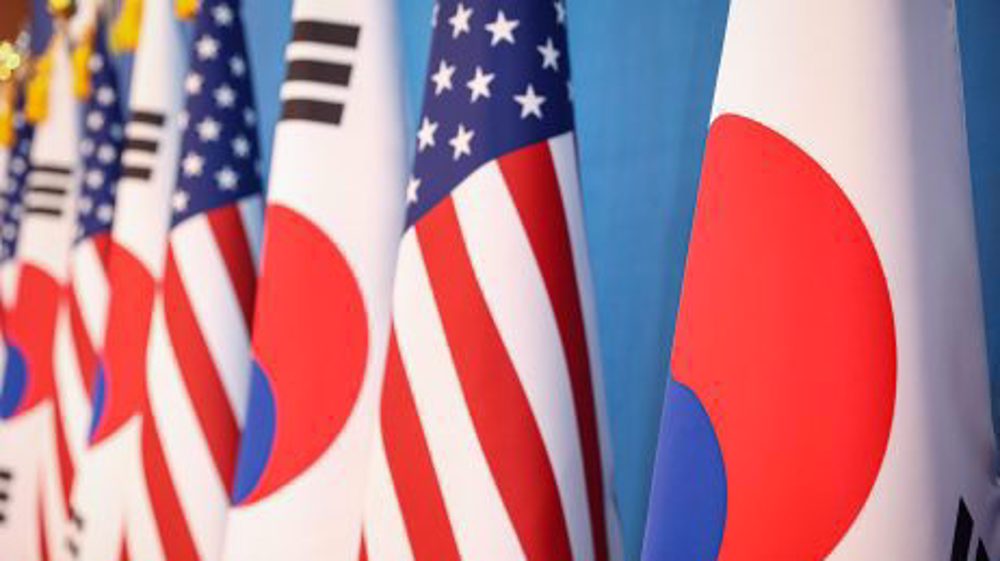
US-South Korea trade tensions
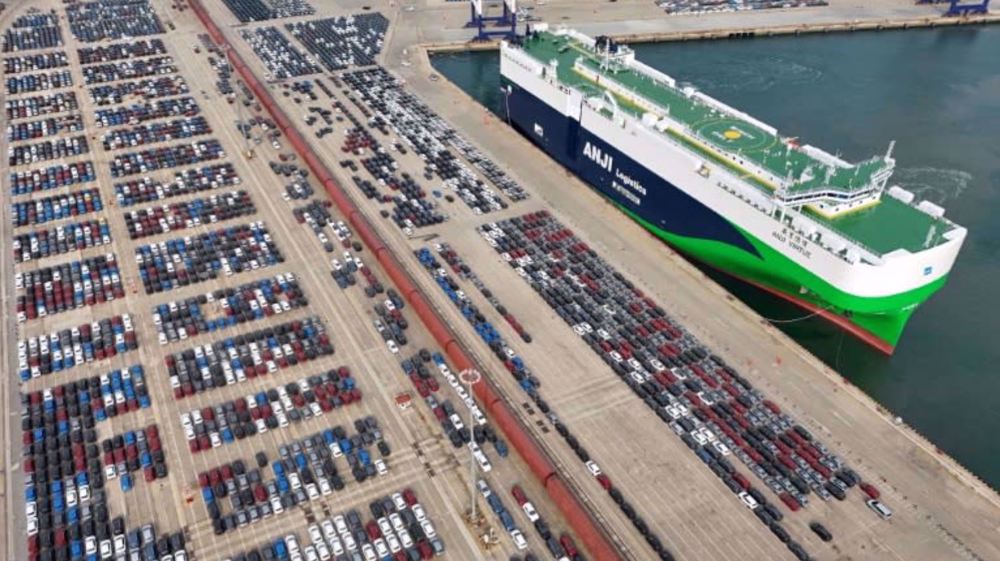
China ‘firmly’ opposes countries making trade agreements with US at its expense
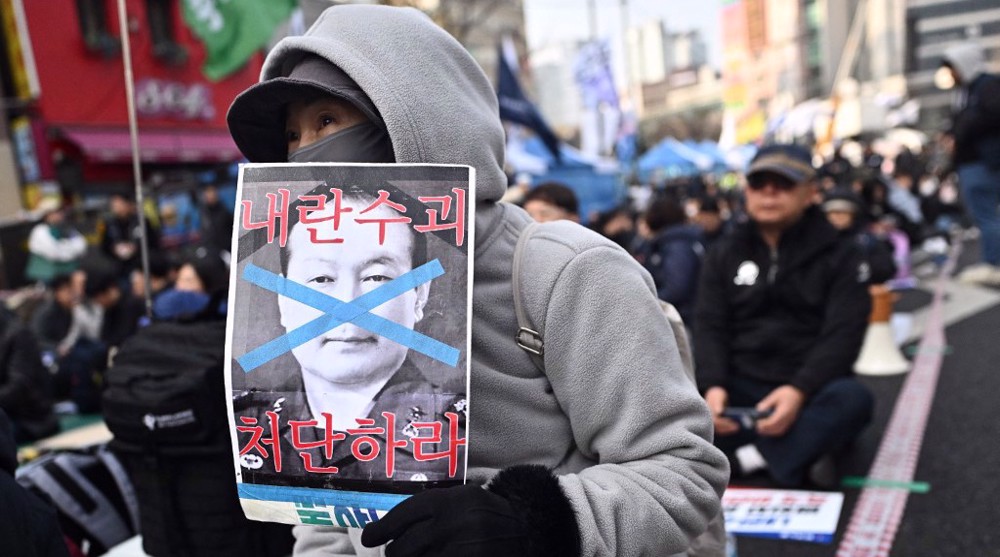
South Korea's court removes president over martial law controversy
VIDEO | Press TV's news headlines
VIDEO | Pakistan’s business and cultural front unites for Gaza: Nationwide shutdown, boycott announced
US jets carry out more aggression against Yemen
Syrian militants enslaving Alawite women in Idlib governorate: Report
VIDEO | US pro-Palestinian campus protest
VIDEO | Palestinian civil defense rejects Israel’s probe and exposes the crime
India downgrades ties with Pakistan after deadly Kashmir attack
Iran’s steel output up 3.7% y/y to 3.3 million mt in March


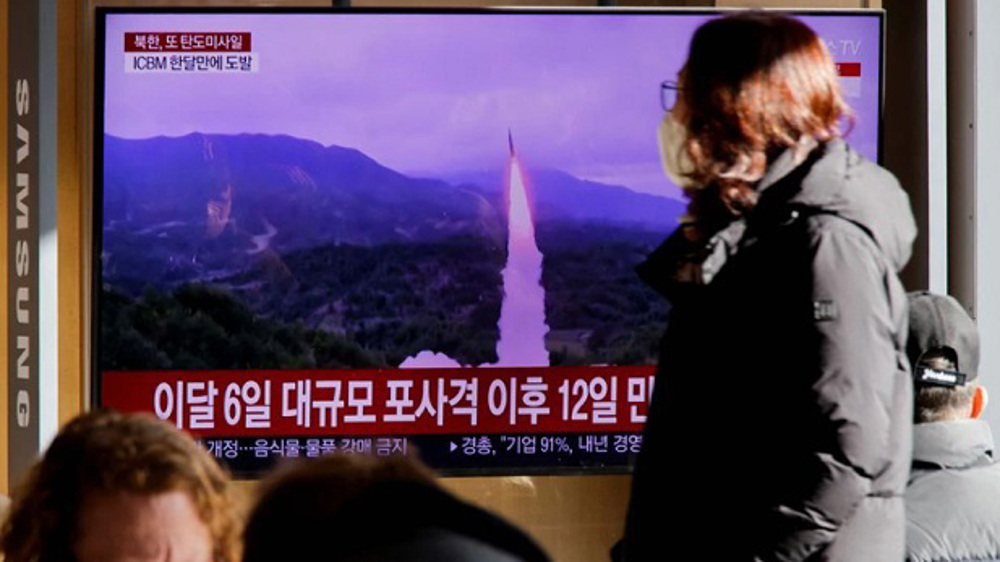



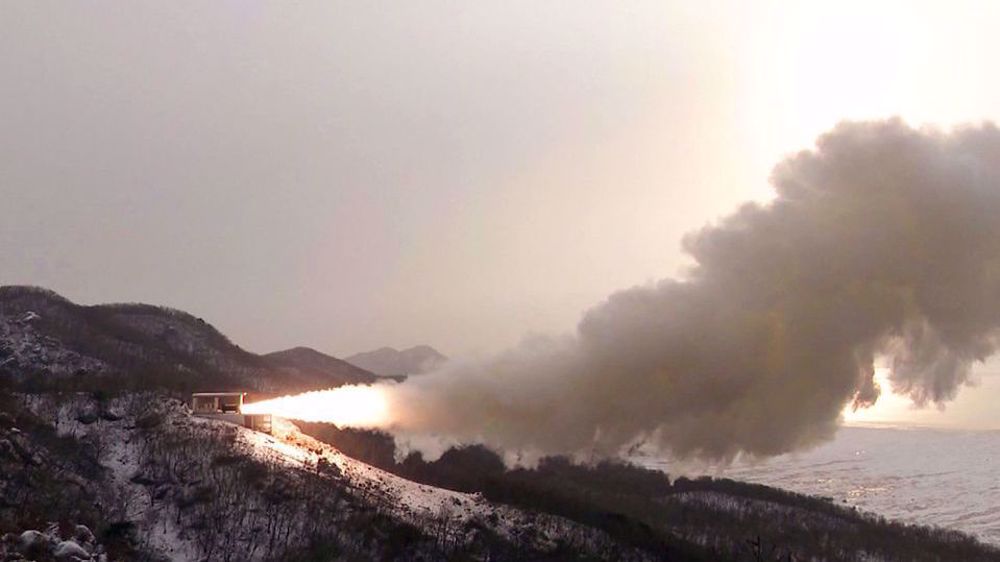
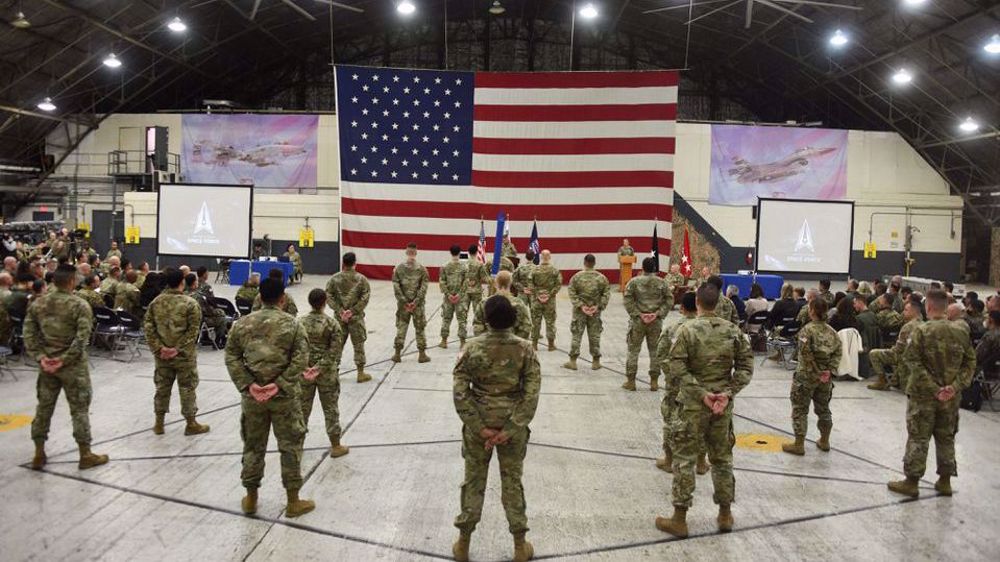
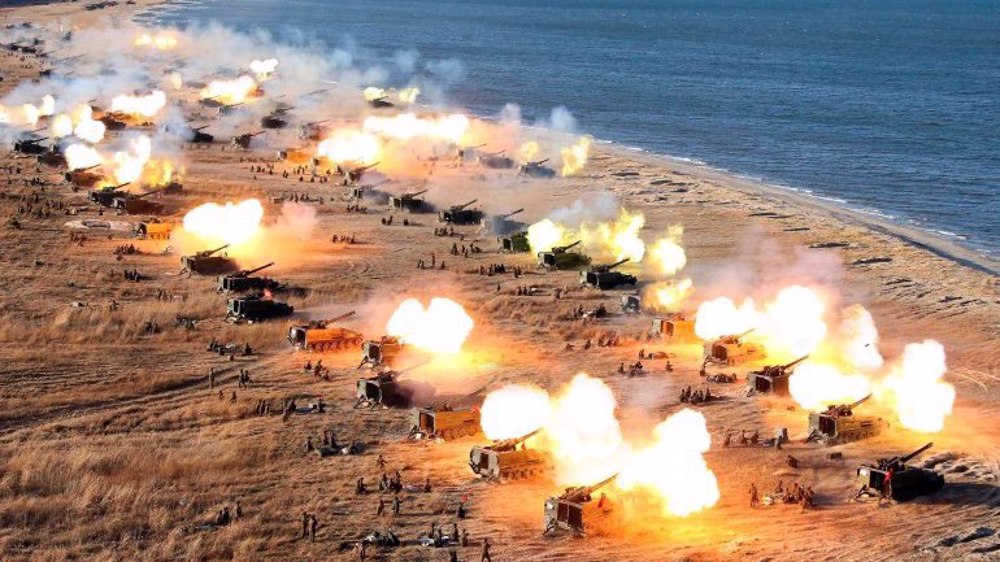

 This makes it easy to access the Press TV website
This makes it easy to access the Press TV website